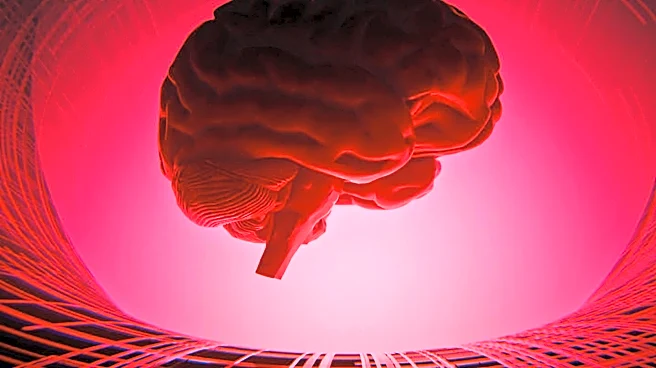What's Happening?
A recent study conducted by researchers at McGill University has demonstrated that a cognitive training program can increase the production of acetylcholine, a neurotransmitter linked to memory and attention, in older adults. The study involved 92 participants
aged 65 and older, who were divided into two groups. One group engaged in BrainHQ exercises, while the control group played games designed for entertainment. Over a 10-week period, participants in the BrainHQ group showed a 2.3% increase in acetylcholine production in the anterior cingulate cortex, a brain region crucial for learning and memory. This research is the first to show that brain training exercises can counteract the natural decline in cholinergic function associated with aging.
Why It's Important?
The findings of this study are significant as they suggest that cognitive training can have a positive impact on brain health, potentially offering a non-pharmacological approach to enhancing cognitive function in older adults. Acetylcholine deficiency is common in various types of dementia, including Alzheimer's disease, and boosting its production could help mitigate cognitive decline. This research could influence public health strategies, encouraging the integration of brain training exercises into routine activities for older adults to maintain cognitive health. The study also highlights the potential for brain training programs to be used as preventive measures against cognitive disorders.
What's Next?
The study's promising results have led to plans for a follow-up trial funded by the National Institutes of Health, which will explore the effects of brain training exercises on individuals with mild cognitive impairment. This could provide further insights into the potential therapeutic benefits of cognitive training for those at risk of developing dementia. Additionally, the study's limitations, such as the lack of diversity among participants, suggest the need for more inclusive research to understand the broader applicability of these findings across different demographics.
Beyond the Headlines
The study raises ethical considerations regarding the accessibility of brain training programs, as they may require internet access and technological proficiency, potentially excluding certain populations. Furthermore, the involvement of Posit Science, the company behind BrainHQ, in the trial could suggest a bias, emphasizing the need for independent research to validate these findings. The long-term implications of regular cognitive training on brain health and its integration into healthcare practices remain areas for further exploration.
















